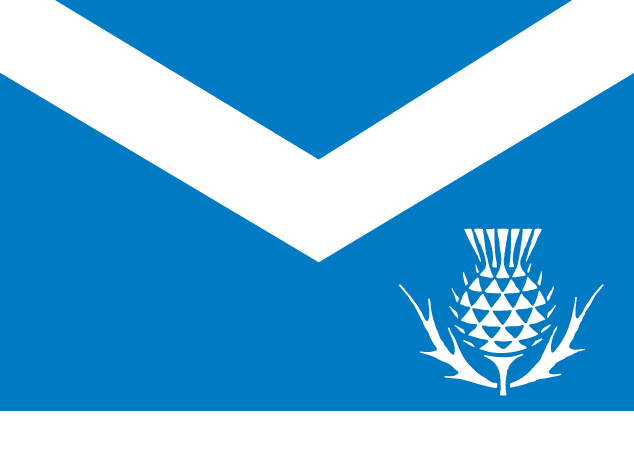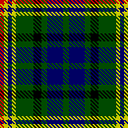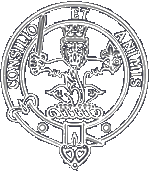
Clan Maitland
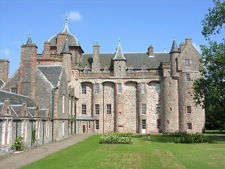
History
A Mautalent (the earliest form of the name) traveled with William the Conqueror and fought at the Battle of Hastings in 1066. As well as the list of all William's "companions," there was a separate record of his followers who died at Hastings. One would expect all of William's 300 companions who survived the battle to have been awarded land in England after the Conquest. Since there is no Mautalent listed in the Domesday Book, it is presumed that he died during the subsequent campaign. Had he lived, he would have received land in England, and the family would be English instead of Scots. When David became King of Scotland in the 1100s, he recruited Norman knights, one of whom was a Mautalent who was given a fief in Scotland. It is probable that he was a direct descendant or relative of the Mautalent who fought at Hastings. Maitland Clan members believe that every Maitland is descended from one single individual who lived in either Normandy or Scotland. Because the name is so rare and also so pejorative in meaning in Old French, it seems unlikely that others would choose to use it.The Mautalent name gradually turned to Maitland under the influence of the use of English. The family moved its base from Lauderdale to Haddington in 1345, and then in the 1500's turned from warriors to lawyers, with Sir Richard Maitland of Lethington its first lawyer, who became the senior Scots lawyer and was also a fine poet. His elder son William was Secretary to Mary Stewart, and the younger son John became Chancellor of Scotland for Mary's son, James I, and the first Baron Maitland. The two brothers played an active part in securing the English throne for James. In the 17th century, John Maitland, 2nd Earl of Lauderdale, became Duke of Lauderdale and ran Scottish government for nearly 20 years.
At the end of the 18th and in the early 19th century, the family produced a distinguished economist, James the 8th Earl, who first developed the economic thoery and practice finally developed by Lord Keynes, the concept that whilst a budget surplus would tend to deflate the economy, a small deficit would stimulate economic growth. This is the basis of economic management used today. Col. Richard Maitland was Deputy Adjutant General of North America in 1772 — effectively about 3rd or 4th in command of the continent! A nephew, Sir Frederick Lewis Maitland took Napoleon's final surrender in 1815, whilst a kinsman, Sir Peregrine Maitland commanded the Guards division whose volleys ended the Battle of Waterloo and the French revolutionary wars.
Maitlands continued to be active in public life in the 20th century. Sir James Ramsay Steel Maitland was a cabinet minister during and after World War I. Field Marshal Sir Henry Maitland Wilson took command of the Mediterranean after General Eisenhower in 1944, and both the present Earl and his daughter were Members of Parliament.
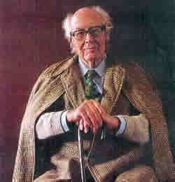
Maitlands are found all over Scotland, with the main areas of settlement being Aberdeenshire and Galloway near Kirkcudbright. Maitlands from Lauderdale settled in the latter areas around 1400. There is an active Clan Maitland Society in both North America and in the UK.
For a detailed history, CLICK HERE.
It is believed that all Maitlands are ultimately related. For a treatise on this, READ HERE.
